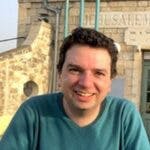Published: 17 June 2022
Last updated: 5 March 2024
Israeli volunteers are searching for the unknown grave of an Australian killed in World War One in the Negev, reports ITTAY FLESCHER
More than 100 years after he fell fighting in World War One, Private Louden Park Cochrane has sparked a search party in the Negev.
The Anzac trooper, aged 24, was killed in 1917 in the Battle of Be’er Sheva and buried in a temporary grave, which has never been located. The Australian War Memorial notes his grave as “Known unto God”.
But now a group of 30 Israeli volunteers working with the Defence Attaché from the Australian Embassy, has revived the search for Private Cochrane’s remains.
They are hoping to locate the grave using metal detectors to find any metal objects that may have been buried with the soldier.
The motivation of these Israelis to locate and honour the fallen Australian solider stems from the role the Anzac soldiers played in the British liberation of Palestine after centuries of Ottoman rule, which eventually led to the creation of Israel.

Gan Erez, an Israeli who is organizing the current search party, told Israeli news site Walla that for him the search was comparable to Israel’s commitment to finding the remains of missing IDF soldiers.
"For me (finding the body) is such a clear thing, I cannot understand who is asking me why we are making such an effort. If it was a search for Eli Cohen, Ron Arad or Guy Hever, they would not be surprised at the strong desire to find them. For me, this is a soldier who fought and was killed for the liberation of my country and his burial place must be found," he explained.
Private Cochrane was a member of the 10th Light Horse Regiment, which participated in the capture of Be’er Sheva, a decisive battle between the Allies and Turks during World War I.
Of all the historic events that bind the Australia-Israel relationship, none is as dominant or more heavily featured in speeches from ambassadors, prime ministers and federation leaders as the heroic light horse charge of 1917, which clinched the Battle for Be’er Sheva.
Known as the “last successful cavalry charge”, the Charge of the 4th Light Horse on 31 October 1917 is commemorated with the Australian Soldier Park in Be’er Sheva. In 2017 Australia and Israel held a joint re-enactment.

Palestinian and Bedouin citizens of Israel, view the Anzacs in a far less positive light. A year after the light horse charge, more than 50 inhabitants from the Bedouin village of Surafend (now Tzrifin, Israel) were killed by soldiers of the ANZAC Mounted Division on 10 December 1918.
“No Anzac or Scottish soldier was ever held responsible for the murders at Surafend or the Bedouin camp, or for the destruction of the village,” wrote Guardian Journalist Paul Daley. “The official inquiries were a whitewash, so comprehensively did most of the men lie to protect one another.”
Private Cochrane’s remains have never been located, although his mother sent a letter to the ADF in 1923, requesting they locate her beloved son and bring him back to Australia for burial, Walla reported.
The search for this missing soldier continues, as does the Anzac legacy.
Photo: Private Louden Park Cochrane and fellow Anzacs at his grave in 1917 (Australian War Memorial)



